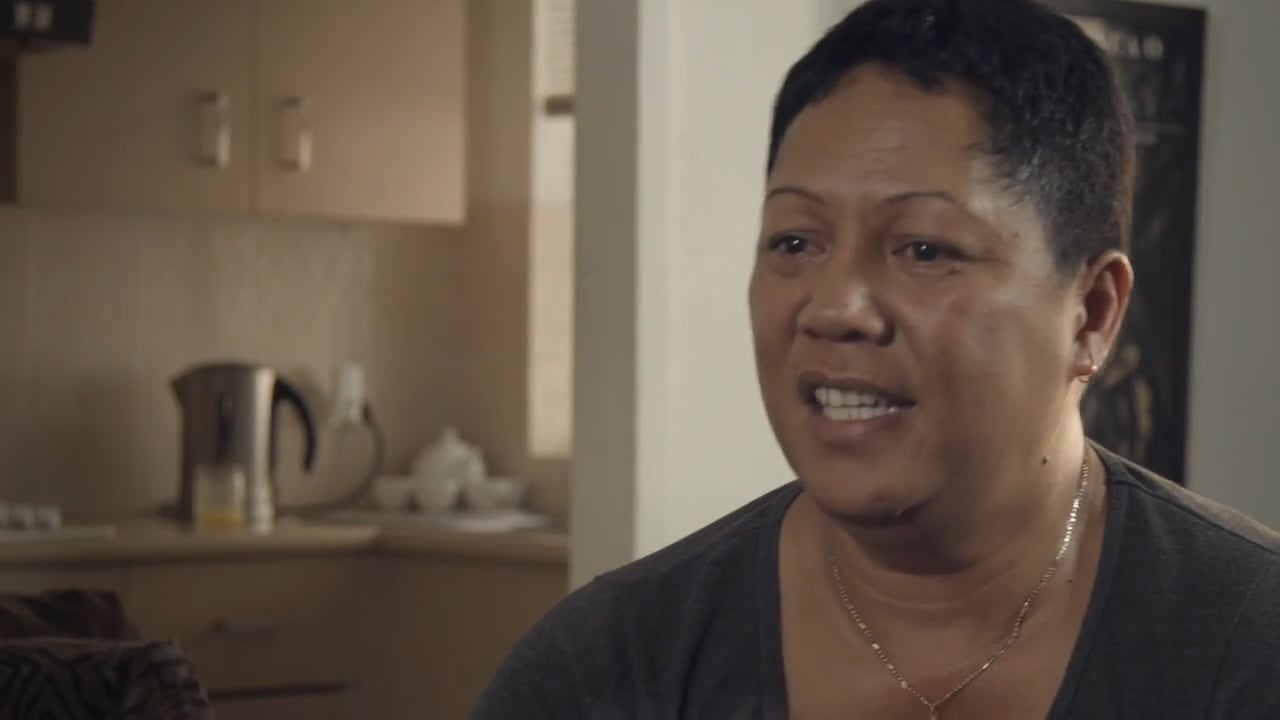Work with our award-winning team



First thing's first
If you’ve been injured by a medical service provider, you may have a Medical Negligence claim.
Your claim includes compensation for medical expenses, professional care costs, loss of earnings, and pain and suffering.
Generally, it is preferable to bring your claim within three years. If you’re outside the time limit, you may still be entitled to make a claim, but it’s all the more important to seek immediate legal advice.
Medical negligence claims are notoriously complex, and without a specialised lawyer you may not receive your full entitlements. Our award-winning Medical Negligence team are always on standby to discuss your claim.
Here is what an expert lawyer can do for you
To find out what kind of Medical Negligence claim you might have (and how you can get the most out of it), you need specialist legal advice. Recognised as “Leading Medical Negligence Compensation Lawyers 2022” by the prestigious Doyle’s Guide Awards, we have the skills and experience to completely change the outcome of your case.
Your lawyer will:
- Determine whether you have a claim and provide meaningful advice on its value
- Obtain strong evidence to prove that the medical professional was negligent
- Challenge medical and other evidence provided by the insurer
- Advise you on the right strategy to progress your claim, especially when the insurer is not offering you a fair settlement
- Maximise your final compensation payout
Frequently Asked Questions
Do I have a claim?
You have a claim against a medical service provider if you can show:
- The medical service provider owed you a duty of care. You are owed a duty of care by your doctor, dentist, or hospital.
- The medical service provider breached their duty of care to you. For example, your GP owes you a duty of care to investigate any health complaint properly. If they don’t, they may have breached their duty of care.
- Their negligence caused your injury. You need to show a direct link between your current health condition and the treatment (or lack of treatment) provided by the healthcare professional.
If you think you have a claim, or you’re unsure, get in touch. We can help you establish whether you have a claim and get you the compensation you deserve.
How much compensation will I get?
There’s no absolute answer to this. Each case turns on its particular facts, circumstances, and relevant law.
At the lower end of the range, some claims are limited to $100,000 to $200,000 in damages. At the opposite end of the range there are cases where compensation is more than $10 million.
On the whole, your claim will include financial compensation for:
- Pain and suffering
- Loss of enjoyment of life
- Past and future medical expenses
- Past and future professional care costs
- Loss of past and future earnings
- The assistance provided to you by family and friends
Once you get in touch, one of our team will be able to give you an estimate based on your particular situation.
What are common types of medical negligence claims?
Below are just some of the common claims we have won for our clients over the years. Medical negligence can take many different forms, so if you don’t see your claim here, get in touch today.
- Surgery & emergency treatment errors
- Insufficient post-operative care
- Pregnancy and childbirth complications
- Paediatrics and gynaecology
- Cerebral palsy claims
- Misdiagnosis or delay in diagnosis
- Failure to advise of medical risks
- Prescription and medication errors
- Improperly inserted medical implants or devices
- Dental care errors
Which medical professionals can I claim against?
If you’ve suffered at the hands of a negligent medical professional or facility, we can help. This includes:
- Hospitals
- Surgeons
- General Practitioners (GPs)
- Specialists
- Nurses
- Dentists
- Oncologists
- Radiologists
- Pharmacists
- Midwives
How long will my claim take?
That all depends on your case. How complex it is, and how long it takes for your condition or injuries to stabilise. As a guide, most medical negligence compensation claims take between 12 to 18 months to finalise.
We will be able to give you a good estimate of how long things will take once we know the facts of your particular situation.
What are the time limits?
Every state has different laws on time limits. In some states you have three (3) years from the date of injury to start court proceedings. In others you have three (3) years from the date you discovered you have a serious injury.
There are major exceptions to these rules, so this is where expert legal advice can make a real difference. If you believe you are a victim of medical negligence, get in touch with our specialist team of lawyers today.
Can I claim for a family member who died?
In Australia, you cannot claim compensation on behalf of a person who has died due to medical negligence. But that doesn’t mean we can’t help you. You and your family members may still have a claim for:
- Nervous shock – caused by the emotional impact of the death for you and your family.
- Compensation to relatives – when family members were financially dependent on the person who died, they may claim for this financial loss.
Will my case go to Court?
Probably not. Courts throughout Australia now have a compulsory process that requires the parties to meet and negotiate before the case is given a date for a court hearing. As a result, about 95% cases settle out of court. If required, we will not hesitate to take your case to court.
What other claims could I have?
In addition to your medical negligence claim, if you can no longer work in the job you were doing before your illness or injury, you may have a Total and Permanent Disability (TPD) claim under your:
- Superannuation policy
- Personal insurance policies
- Both superannuation and personal insurance policies
Like many Australians, you may be entitled to TPD but not know you are covered. Our team of lawyers, specialised in superannuation and insurance claims, will find out for you. They’ll take a detailed look at your policy, and explain everything you’re entitled to.
My medical professional treated me without proper consent—what can I do?
Every medical professional owes their patient a duty of care. The trust we place in medical professionals, coupled with their specialised skills, means the law holds them to a high standard of care. This duty extends to obtaining informed consent, prior to administering any treatment.
What is consent?
In a medical context, there are two different types of informed consent: implied consent vs. express consent. Express consent is usually provided in written form, such as a written consent for medical treatment that explicitly relates to the procedure being performed. In contrast, implied consent is typically conveyed through the actions or conduct of the patient, such as rolling up your sleeves for a blood test. Implied consent can also include situations in which a patient has signed a general consent, allowing the medical professional to proceed with any necessary medical treatments.
Prior to some procedures, a surgeon will provide their patient with a pamphlet, which can be considered a form of informed consent.
There are also instances in which consent cannot be obtained, such as where a patient is unconscious or the situation is an emergency. In these cases, it is unlikely the medical professional will be found to have breached their duty of care.
Does my situation qualify as medical negligence?
When determining whether the consent related to your treatment by a medical professional amounts to medical negligence, it’s important to look at what was explained to you prior to the procedure.
You may have a claim for medical negligence if a medical professional:
- Failed to obtain informed consent prior to performing a procedure on you, or
- Failed to explain or warn you of the risks associated with the particular procedure and, if informed of those risks, you would not have proceeded, and
- A complication arose as a result of the procedure and this was not explained to you prior, and
- The complication or result caused injury to you
When determining whether or not a medical professional failed in their duty of care, an additional consideration is whether an industry peer within the same specialty would have acted in the same manner. This is a question that is required to be answered prior to the commencement of any medical negligence claim.
Though consent-based claims for medical negligence are incredibly complex, a skilled medical negligence lawyer can help you navigate your claim. If you’re looking to start a medical negligence claim, or unsure whether or not you have a claim, give us a call today. Our medical negligence lawyers will take you through your legal options in a free, obligation-free consultation.
What does not qualify as medical negligence?
Medical negligence is a highly complex area of law and, as such, the situations that qualify as medical negligence are broad-ranging and often nebulous.
However, in our experience, there are particular circumstances that do not satisfy a claim of medical negligence. These include (but are not limited to):
- A complaint against a hospital, nurse or medical practitioner for their manner. While we understand this can be upsetting, unfortunately poor bedside manner does not satisfy the threshold for negligence.
- A situation where the patient’s condition worsens for unknown reasons, despite the medical professional meeting acceptable standards of care.
- Minor injuries as a result of treatment, e.g. bruising from an injection or at the site of a medical treatment that the patient consented to.
- The occurrence of an injury, adverse outcome, or tragedy, despite the medical practitioner following best practice.
- A reaction to a COVID-19 vaccination. While this does not qualify as medical negligence, there is government assistance available for those have been hospitalised due to vaccination.
How do I prove negligence?
To prove medical negligence, you need to show that a medical treatment or a procedure fell below the standard of care reasonably expected from a medical professional within the same field of expertise.
An example of negligence
Jenny visits her GP numerous times over several months, complaining of severe headaches. The GP tells Jenny to take Panadol and does not do any further testing to investigate the headaches. Jenny then suffers from a cerebral aneurysm which results in major surgery and lifelong complications.
In this scenario, we would need an expert GP to comment on the treatment and care provided to Jenny, and to provide an opinion as to whether that care fell below the standard expected of a GP.
Expert opinions
We have a dedicated panel of experts and specialists who we call upon to provide these opinions. The law requires a favourable expert opinion to be provided prior to the commencement of any claim for medical negligence.
If the expert opinion appears to be favourable (in that the practitioner fell below the standard of care), you may have a claim for medical negligence.
Duty of care
Importantly, proving negligence also involves establishing that your medical professional breached their duty of care. This means that you may have a case for medical negligence if you can show:
- Your medical professional or service provider owed you a duty of care, e.g. a doctor, dentist, or hospital.
- They breached their duty of care to you, e.g. if a GP does not investigate a health complaint properly, they may have breached their duty of care.
- A direct link between your current health condition and the provided by the medical professional. That is, their negligence caused your injury.
A medical professional has misdiagnosed my illness, do I have a claim?
A misdiagnosis from a trusted medical professional can have a drastic impact your life. If a medical professional has misdiagnosed your illness, you may have a claim for medical negligence.
It is important to recognise that not all cases of misdiagnosis are also cases of medical negligence. For a claim to be successful, there must be clear evidence that supports the following:
- A medical professional with similar training would not have made the same mistake, and
- You have suffered harm or injury as a result of the misdiagnosis.
In order for a medical negligence claim for misdiagnosis to be successful, both of these criteria must be satisfied.
Another factor to consider is whether or not another treatment or earlier diagnosis would have resulted in a better outcome. This can relate to whether or not a patient is terminally ill, whether another treatment would have had a better result, or whether the date of their diagnosis had an adverse effect on their life expectancy.
Given the complex nature of misdiagnosis claims, it is essential to get legal advice from a specialised medical negligence lawyer. Call today for a free initial consultation: our team will listen to the facts of your case and provide obligation-free advice on where you stand.
Can I make a claim for a botched cosmetic surgery?
With the rise in popularity of cosmetic procedures and body modifications—from permanent implants to temporary injectables like filler—there has been a corresponding increase in the number of people looking to make medical negligence claims for botched cosmetic procedures.
For a medical negligence claim to be successful, you must prove that a medical professional breached their duty to care to you. Medical professionals who owe you a duty of care include doctors, nurses and dentists, as well as public and private organisations such as hospitals. If a registered plastic surgeon or registered cosmetic practitioner botched your cosmetic surgery, they owed you a duty of care and you may have a claim. Get in contact today for your free initial consultation, and one of our lawyers will talk you through your options.
Cosmetic vs plastic surgery
If you had cosmetic surgery or body modifications, these practitioners do not, unfortunately, owe you a duty of care. The Medical Board of Australia provides the following definitions as to cosmetic medical and surgical procedures:
Medical and surgical procedures are operations and other procedures that revise or change the appearance, colour, texture, structure or position of normal bodily features with the dominant purpose of achieving what the patient perceives to be a more desirable appearance or boosting the patient’s self-esteem.
- Major cosmetic medical and surgical procedures (‘cosmetic surgery’) involve cutting beneath the skin. Examples include: breast augmentation, breast reduction, rhinoplasty, surgical face lifts and liposuction.
- Minor (non-surgical) cosmetic medical procedures do not involve cutting beneath the skin, but may involve piercing the skin. Examples include: nonsurgical cosmetic varicose vein treatment, laser skin treatments, use of CO2 lasers to cut the skin, mole removal for purposes of appearance, laser hair removal, dermabrasion, chemical peels, injections, microsclerotherapy and hair replacement therapy
Anyone claiming to be a doctor, dentist or nurse, must be registered to practice in Australia. Check the national online register of practitioners on the Australian Health Practitioner Regulation Agency.
This is where you can make sure the practitioners involved in your procedure are registered in Australia.
It is important to note that a significant injury has to have occurred from the cosmetic procedure for it to be considered a viable claim. A slight reaction such as minor scarring, a rash or bruising will not satisfy the test for medical negligence.
What to do about a botched cosmetic procedure
If you have suffered an injury at the hands of a cosmetic therapist, such as a beauty therapist or tattooist that is known to perform body modification procedures, then unfortunately you do not have a medical negligence claim. Instead, you may be able to make a public liability claim for their ‘provision of service’.
You may also make a formal complaint to your state’s health ombudsman or health care complaints commission, who will investigate your complaint. On certain occasions, the ombudsman or commission’s findings can result in you having a claim.
Links to the relevant state complaints commissions can be found below:
NSW – Health Care Complaints Commission
QLD – Office of the Health Ombudsman
WA – Health and Disability Services Complaints Office
Who pays the compensation?
All medical practitioners are required by law to have Professional Indemnity Insurance (PII), which protects them from personal liability in the event that their treatment (or lack of treatment) causes illness or injury.
If you are successful in your negligence claim against a medical professional, the insurance company who covers their PII will pay the compensation on behalf of the practitioner or medical facility. There are rare exceptions where a medical professional may be personally liable, such as when they have stopped practicing prior to the claim. Our lawyers can easily find out if and when a practitioner has stopped practicing, and if they will have available assets to be sued at law.
Our promise is simpleNo win, no fee
There’s absolutely no financial risk for you or your family. It’s free to start your claim, and you pay nothing unless we’re successful. No successful outcome, no fees or expenses owing. It’s that simple.
- $0 upfront: we pay all your expenses, including medical reports
- A simple contract: so you know exactly what to expect
98% Success Rate
We have one of the highest success rates in the industry. This doesn’t just happen. It’s our hard, diligent work that gets results. We leave nothing to chance in preparing your claim, so you get the result you deserve.
What to look for in a Medical Negligence lawyer
Medical negligence is one of the most technically challenging areas of law. Your lawyer will need both excellent legal skills and specialist medical knowledge to prepare your case properly.
Your lawyer will also need to have access to an extensive network of medical experts to build your case.
Award-Winning Lawyers
Doyle's Guide "Leading Medical Negligence Compensation Lawyers 2022" (Anthony Porthouse); Global Business Magazine's "Medical Negligence Law Firm of the Year 2020"; and Global Law Expert's "Compensation Law Firm of the Year in Australia 2020".
Medical Law Specialists
We have an expert team of lawyers who deal exclusively with medical negligence, led by Accredited Specialists in Medical Law. Many of our lawyers also have a medical background, and can help you navigate the increasingly complicated world of medical science.
We Maximise Your Payout
We make it our business to get you your maximum entitlements. We won’t settle for less than we know your claim is worth — no matter how hard insurers try.
Our Unique Perspective
We understand the opposition. Many of our lawyers previously worked for insurers, and we know how to cut through the tactics insurance companies use to obstruct your claim.
34 Offices Australia Wide
With offices all over Australia, help is just around the corner. Alternatively, we can organise video conferencing, or come to you in person.
Financial Muscle
It’s no secret that medical negligence claims are expensive to prepare. We have the financial muscle to cover all your expenses and go the distance against medical insurers.
Don’t just take our word for it - See what our clients say
Millions won for our clients
Here are some examples of our firm’s recent wins
We can help you wherever you are in Australia
With 34 convenient office locations across Australia, we’re never far away.
Prefer to stay at home? You can get advice on whether you have a claim over the phone. Just give us a call during business hours − often, you can speak to a lawyer about your case on the spot.
What to expect Your Medical Negligence claim process

- You get in touch for your free consultation You tell one of our team what happened. It’s likely the lawyer you speak to will see your claim all the way to its successful completion.
- We get your medical records Your lawyer will review your clinical notes and analyse your medical history to start building your case.
- We get expert medical advice to support your claim We collaborate with our medical experts and collect the evidence needed to support your case. If you need to visit our doctors, we organise and pay for everything.
- We file documents in Court With the expert evidence to support your case, we commence court proceedings.
- You get compensation and move on with your life The overwhelming majority of cases don’t go to court – they are resolved at a mediation. During mediation, your lawyer manages all the negotiations to get you the best possible result. This is where all the preparation and experience pays off. In the rare instance where your case doesn’t settle, your lawyer will discuss your options with you.
Find out where you stand Free of charge
Call us
Let us contact you





